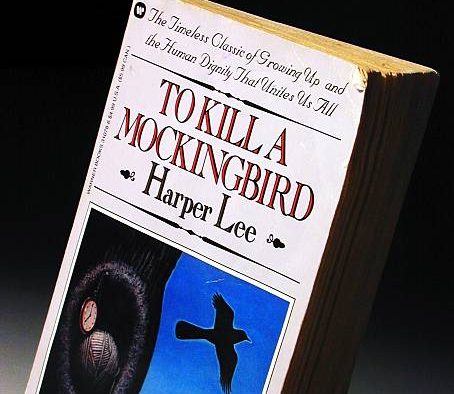Blame the Mockingbird, She Started It.
Gentle Reader,
I have a confession to make. I saw the Broadway play “To Kill A Mockingbird” recently. I knew the story more or less, but I had never seen the movie adaptation of the book. Or read the book, for that matter. As a lawyer and an English major (albeit from an agricultural school) that is double heresy. Like double hearsay, I am not sure exactly what double heresy is but if it exists, I am guilty.
Granted, the book was written before I was born, ditto for the movie. I have no good excuse for my omission so a poor excuse will have to do.
In my defense, law movies and television shows are tough for lawyers to watch. Sitting through the cross examination of Colonel Jessup in “A Few Good Men,” I got elbowed more than a few times by my seatmates for telling the movie screen that the writers couldn’t handle the truth, it would never go down that way. Same with the Kevin Costner’s closing argument of a cross examination in “JFK.” Fiction takes some liberties that real trial practice would never allow. Then again, if it didn’t no one would ever buy a ticket. Trial lawyers’ lives are hours of drudgery punctuated by moments of excitement bordering on sheer terror. I am sure doctors and plumbers feel the same way when they are depicted on screen.
It felt good to get that off my chest. I don’t mind admitting when I am in the wrong and I do it a lot. Any partnered person who says they aren’t wrong a lot is lying. I know this goes against my stereotype. Humans generally and lawyers in particular have a hard time admitting mistakes.
Confession is liberating, unless you are a criminal defendant. Many people have the right but not the ability to remain silent. As a young attorney, silence was frightening. I was quick to fill the gaps with words even if I didn’t really say anything. I have gotten better about it over time, mostly because I frequently forget the words I want to use.
While I am confessing, there are lots of things I don’t know. It can make a client uncomfortable to hear that their attorney doesn’t know everything about the law. Even so, it is better to confess ignorance than to let an opponent figure it out when I keep talking.
The first question people ask when they find out I am a lawyer is “Do you know Lawyer X?” Invariably the answer is no. I know the few hundred people who do the kind of work that I do but even then I don’t remember names as often as I should. “Oh, you mean Ms. So and So’s kid. We went to different law schools together. How is his parakeet?”
When I mention that I came from Oklahoma, folks will ask if I know Joe Bob, who is also from Oklahoma. No apologies on that one, there are too many Joe Bobs. Tell me what kind of truck he drives and I may have a shot.
Even clients who have hired me to represent them for an injury case or insurance claim will call and ask for something outside my area of practice. Word to the wise- if you got arrested and want advice, don’t waste your one free call on me unless there was a car wreck on the way to jail. I am happy to make a referral to someone an accused person can call but I am probably not the right guy.
The Bar and malpractice insurance carriers insist that lawyers give written confirmation of the matter for which we represent a client. The goal is to protect a lawyer from a misunderstanding later, but the collateral effect is to help clients know our limitations. Even clients that I represent for an insurance claim will call and ask other legal questions, well outside of my field and knowledge base, and I don’t mind telling them that I can’t help.
Like most lawyers who represent injury victims, my firm offers free initial consultations. Free things are only worth something if they are useful and free consultations are only useful if the lawyer can consult in his or her field. They don’t help much for the client calling in for a friend’s cousin who was sued in Montana after stabbing a goat.
Some prospective clients don’t want to take no for an answer when I say I can’t help. There are two strategies in these situations. One is to ask for a $20,000 retainer up front. The other is to give the cell phone number of another lawyer.
“Wil Scotsen is a good lawyer and is very busy because of that. You have to be persistent when you call. He will probably tell you no a few times just to make sure you are serious about pursuing your case. Here is a secret though, he is a night owl and the best time to call him is around 2 a.m. “
If you try that approach, expect the favor to be returned. To save you the trouble of sending callers to me, I never answer my phone after 11 a.m.
©2023 With All Due Respect. Spencer Farris is the founding partner of The S.E. Farris Law Firm in St Louis, Missouri. There are stacks of books he hasn’t read, and they fill up libraries. Comments or criticisms about this column may be sent c/o this newspaper or directly to me via email at farris@farrislaw.net.

